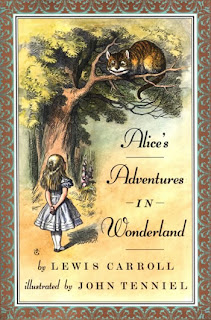I Capture the Castle was a really delightful story of 17 year old girl—Cassandra Mortmain—growing up in 1930s England. She and her family live in abject poverty in an old run down English castle. Her father is a famous author, who has experienced a decade of writers block sparked by a year of imprisonment (the background of which was rather humorous). The result is that the only people in the Mortmain household capable of earning any income are Stephen, an orphan who helps out around the house, and Topaz, the eccentric step-mom who earns money by modeling for paintings. Cassandra is the narrator of the book via her journals; which she started keeping in order to practice speedwriting.
When two young American men, Simon and Neil Cotton, arrive at the castle, the Mortmains lives change drastically. They bring inspiration, financial assistance, love, food and entertainment to the Mortmains and ultimately provide Cassandra with tons of material for her journals.
I kept getting lost when reading I Capture the Castle as the author doesn’t do much by the way of putting the story in historical context. My recent readings have been set during the late 19th century, while I Capture the Castle is set during the mid 20th century. It was interesting to note the various social changes that occurred between the 19th and 20th centuries.
This was a funny, clever, amusing, easy read. The characters were well defined and easy to love (or hate). The story was suspenseful, but not too much, and heart-wrenching in places, but not to bring you to tears.
Favorite Quotes: "In the end, Miss Marcy took the middle pages out of her library record, which gave us a pleasant feeling that we were stealing from the government..." (15)
"And no bathroom on earth will make up for marrying a bearded man you hate." (130)
"I DO NOT ENVY ROSE. When I imagine changing places with her I get the feeling I do on finishing a novel with a brick-wall happy ending--I mean the kind of ending when you never think any more about the characters..." (197)
If this were a movie, I'd rate it: PG-13.
Overall Grade: B
Would I recommend this book to my friends: Some of them--the less intellectually driven ones, or those who want a good, quick, vacation read.





